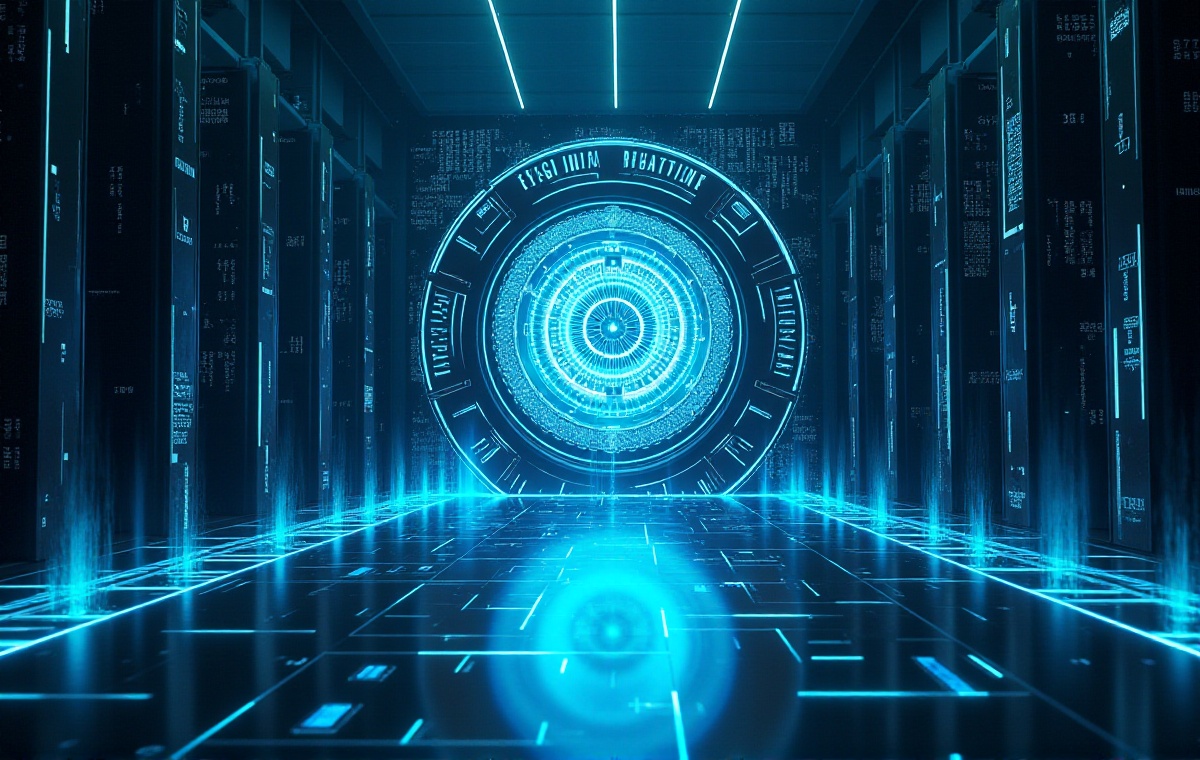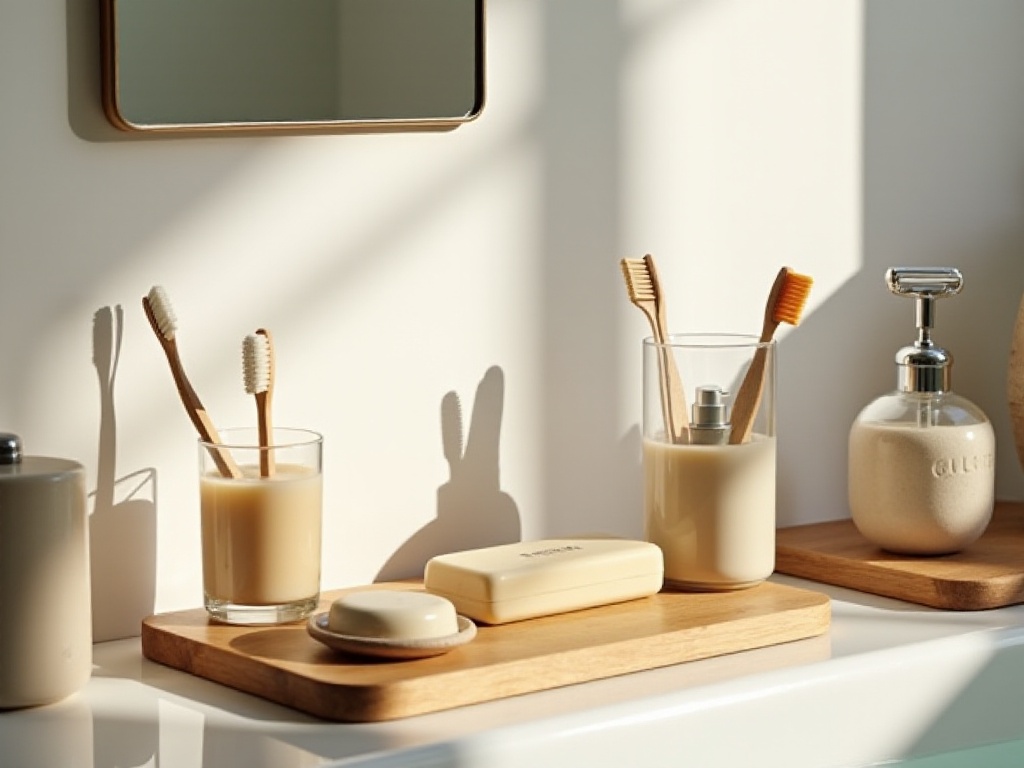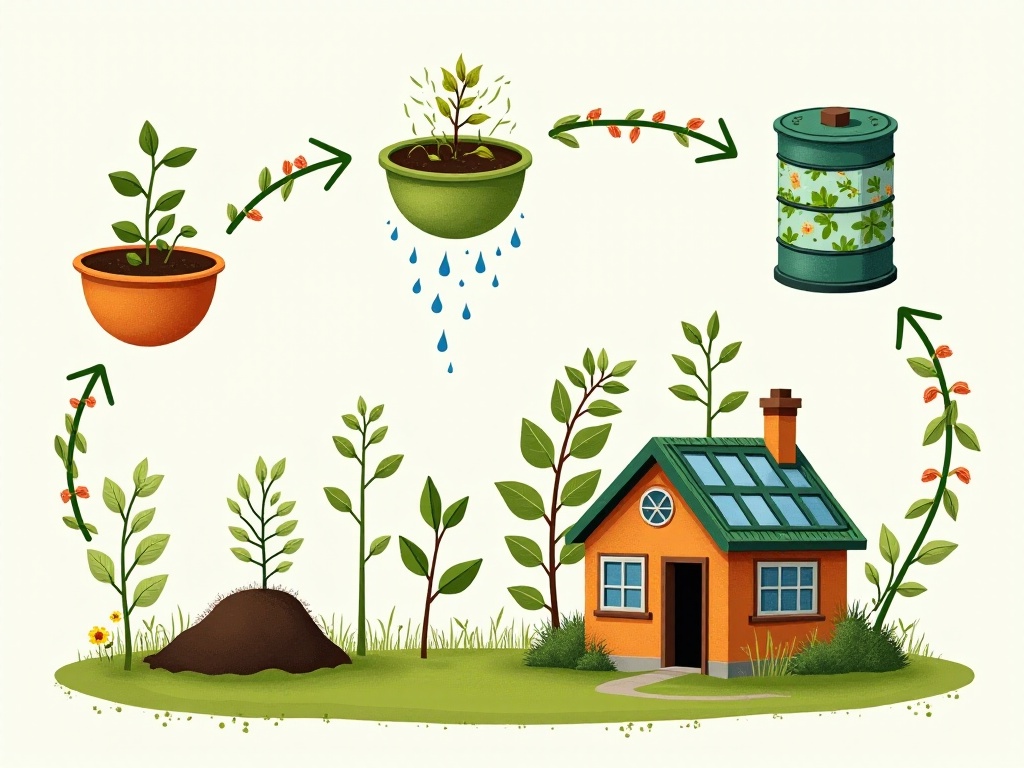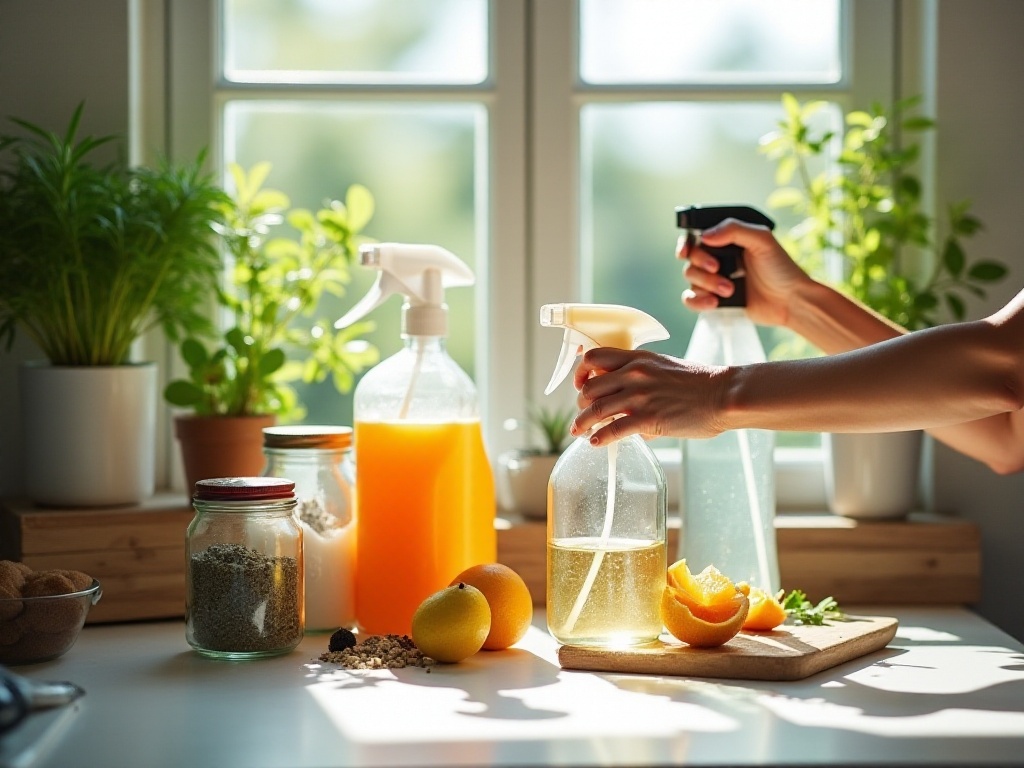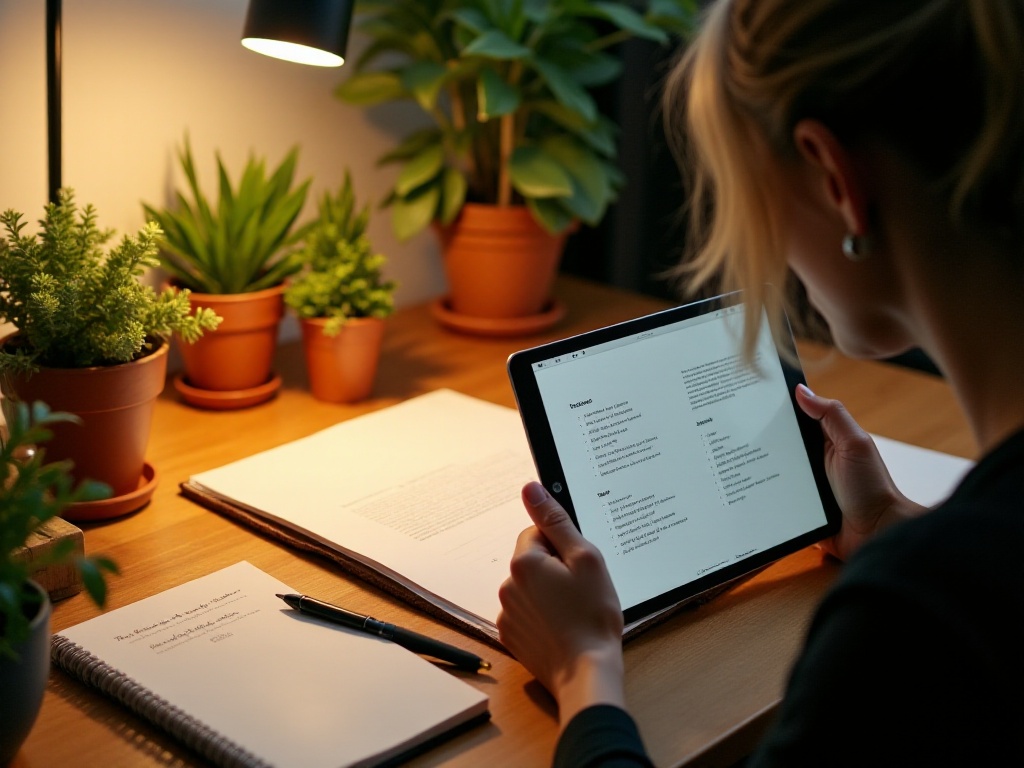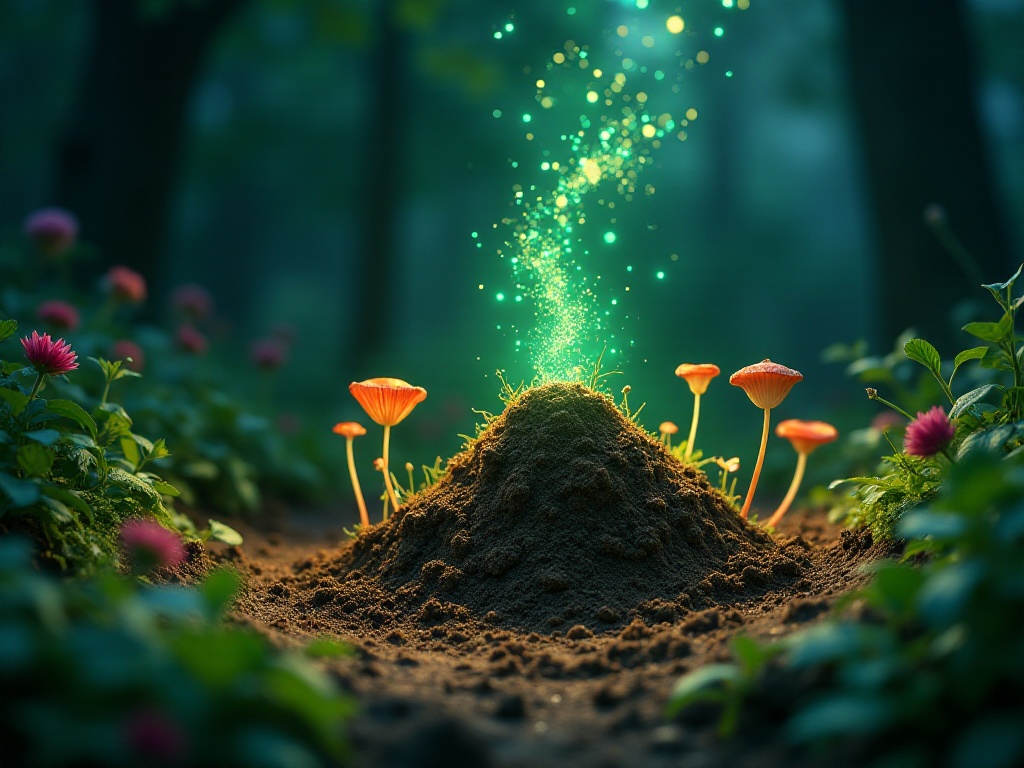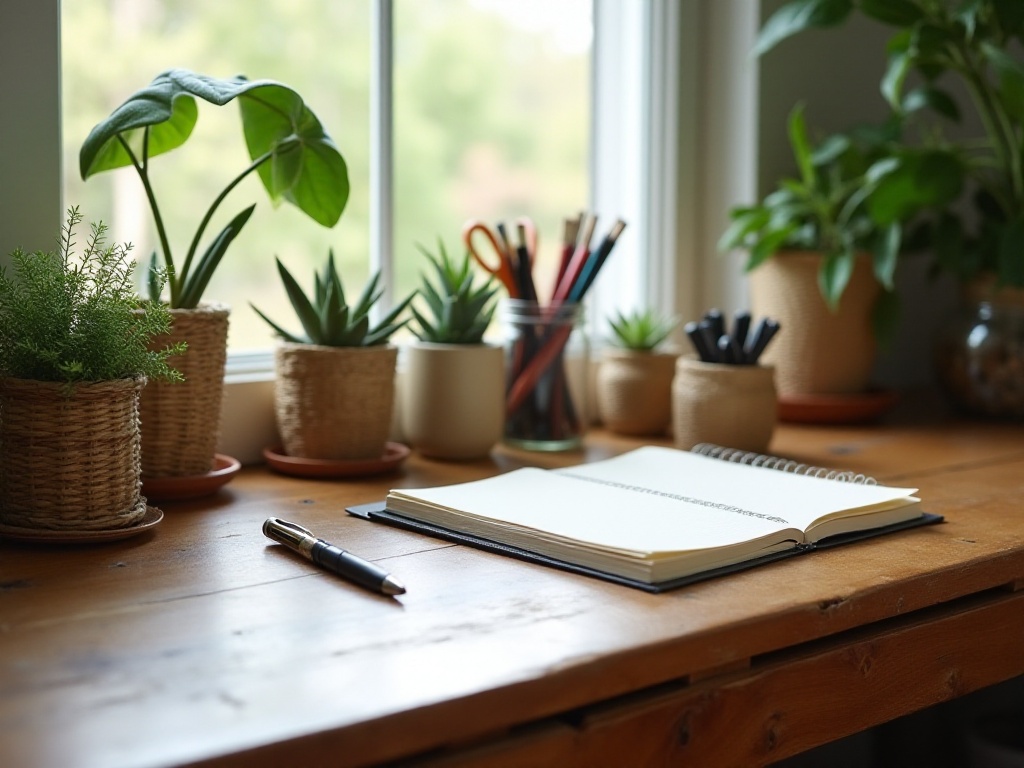An Encounter
On a stuffy summer afternoon last year, I was cleaning my small rental apartment. As sunlight slanted through the window, I dragged my tired body to mechanically take the full garbage bag to the door. Suddenly, I froze - this was the fifth time taking out the trash this week.
I put down the garbage bag and crouched down to carefully examine its contents: Starbucks coffee cups, KFC chicken boxes, various snack wrappers, delivery packaging boxes, discarded disposable utensils... These items almost filled the entire garbage bag. I suddenly realized this wasn't just throwing away trash - it was dumping money and resources.
This discovery led me into deep self-reflection. As a young professional who had just started working, I thought I was living a refined life, but didn't realize I was generating so much waste unconsciously. I started searching online for related information and discovered that many people were already practicing "zero-waste living". This concept deeply attracted me, so I decided to change my lifestyle.
Waste Audit
To change, I first needed to know where I was most wasteful. I decided to do a thorough "waste audit".
I bought several different colored garbage bins to collect different types of waste. For an entire week, I carefully recorded the trash I generated. Every evening, I would carefully sort, weigh, record, and even photograph and archive. This process revealed many details I hadn't noticed before.
Food waste accounted for 35%, mainly leftover meals, fruit peels, and vegetable leaves. Think about it - this is all money! I recalled ordering too much takeout and often not finishing it; buying too many groceries that ended up spoiling in the refrigerator.
Plastic packaging accounted for 30%, a number that truly frightened me. When I calculated carefully, just the daily bubble tea and beverage cups were numerous, plus snack packaging and delivery packaging - plastic waste was everywhere.
Paper waste accounted for 20%, mainly delivery boxes, advertising flyers, and waste paper. In this era of online shopping, I received deliveries almost daily, with boxes typically used just once before disposal.
Other waste accounted for 15%, including used batteries, broken electronics, expired cosmetics, etc. Though fewer in quantity, these items were often harder to dispose of and more environmentally harmful.
This waste audit was a wake-up call. I clearly saw how environmentally unfriendly my consumption habits were. But it also showed me hope for change - now that I knew where the problems were, I could make targeted improvements.
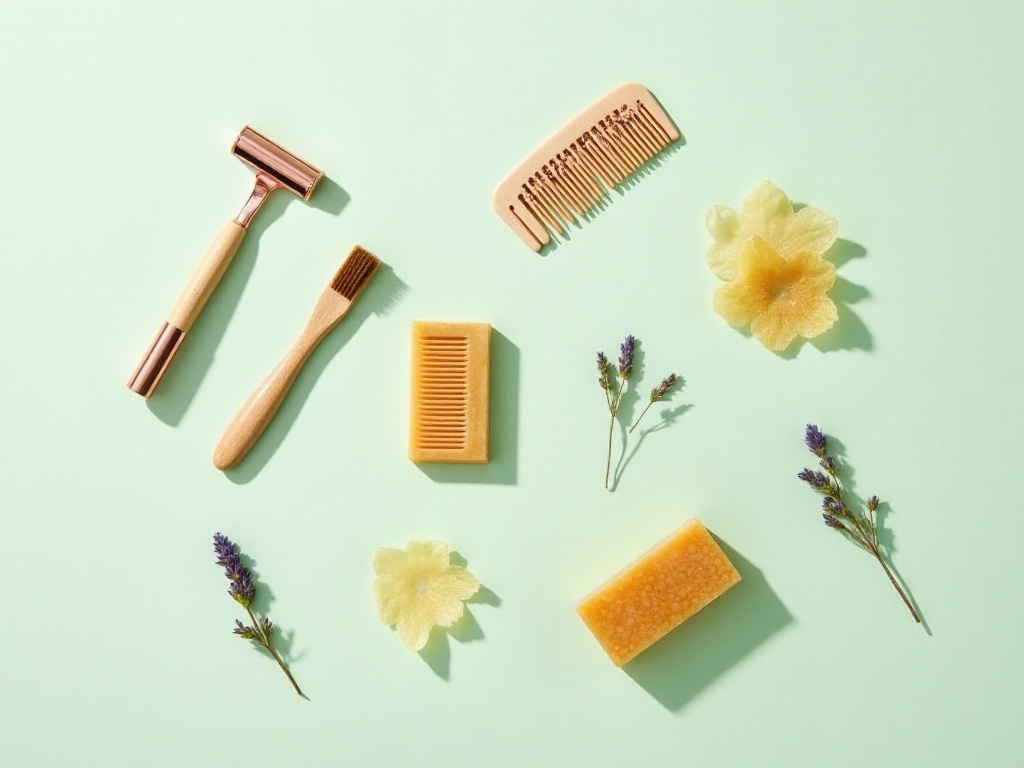
Refusal is Key
After deep research, I understood a principle: the best way to handle waste is not to generate it. This might sound idealistic, but practice proves it's entirely feasible.
I remember the first time at the supermarket, I gathered courage to refuse the plastic bag from the cashier. She paused, then smiled approvingly: "More and more young people like you are bringing their own shopping bags now." These words greatly encouraged me.
For takeout, I started writing "no disposable utensils" in every order's notes. Initially, some merchants would ignore this request, but I would specifically mention it in reviews. Gradually, merchants began taking this seriously, with some proactively asking if utensils were needed.
Delivery packaging was a big issue. I started telling delivery workers that packaging could be recycled and reused. To my surprise, many supported this, with some even actively collecting intact boxes for reuse.
At the office, I also started reducing disposable items use. I brought my own water bottle instead of paper cups, used handkerchiefs instead of tissues, and brought lunch boxes instead of ordering takeout. Colleagues might have thought I was too serious at first, but gradually, some began following suit, even forming a new trend.
When shopping online, I specifically looked for merchants using simple packaging. Some platforms even introduced "green packaging" options. Although it might mean waiting an extra day or two, what's that compared to contributing to environmental protection?
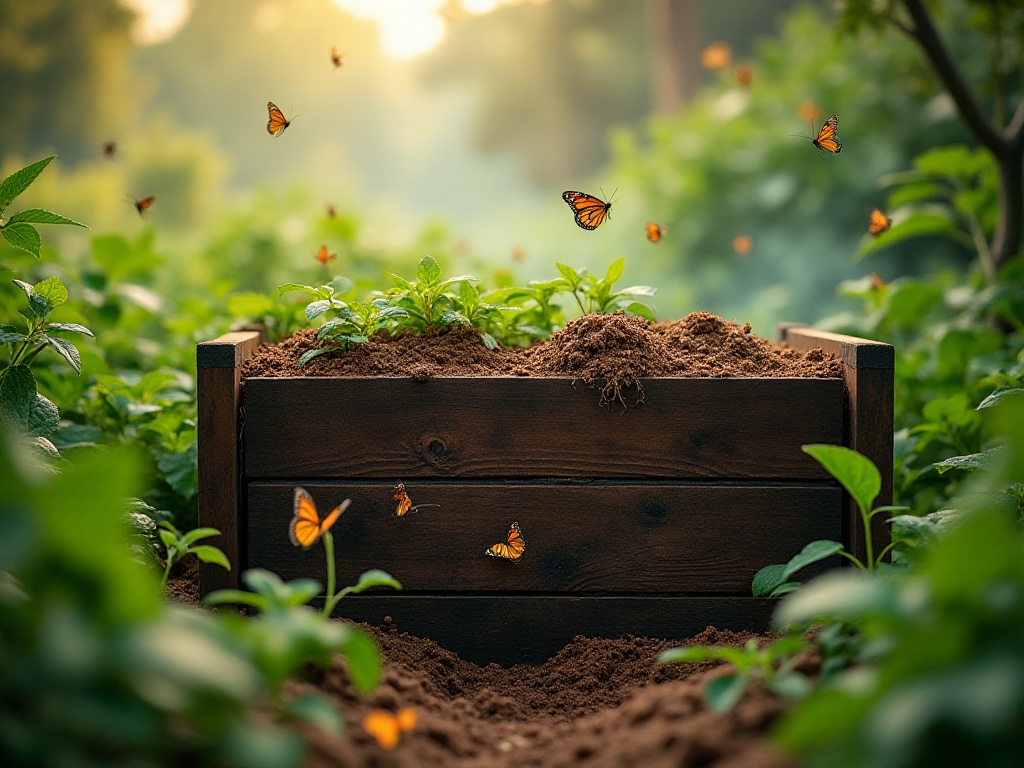
Kitchen Revolution
The kitchen became the main battleground for my zero-waste transformation. Through practice, I discovered kitchen waste was far more serious than imagined, but solutions were actually close at hand.
First came changing shopping methods. I eliminated all plastic bags at home, replacing them with reusable shopping bags. Every time I went to the supermarket, I brought various sizes of cloth bags and glass jars. The bulk section became my most frequent stop, buying everything from rice and flour to seasonings in bulk.
This shopping method wasn't just environmentally friendly, but especially economical. For example, 500 grams of red beans costs 8 yuan in bulk, while packaged ones cost 12 yuan. While the difference might seem small for one shopping trip, it adds up to significant savings over a year.
Next was proper use of ingredients. I used to think vegetable leaves and fruit peels were garbage, but now I know these "wastes" are actually treasures. Radish greens can be stir-fried with a crisp texture; cabbage cores can be pickled for appetizers; fruit peels can be made into jam or tea.
I started learning to create weekly shopping lists and meal plans, allowing accurate estimation of needed ingredients and avoiding spoilage from over-purchasing. I posted expiration date charts on the refrigerator, checking regularly and using near-expiry ingredients promptly.
Kitchen waste found a new destination. I created a small composting corner on the balcony, turning fruit peels, vegetable leaves, and other organic waste into fertilizer. Though the process requires patience, seeing this "garbage" become plant nutrients gives me a special sense of achievement.
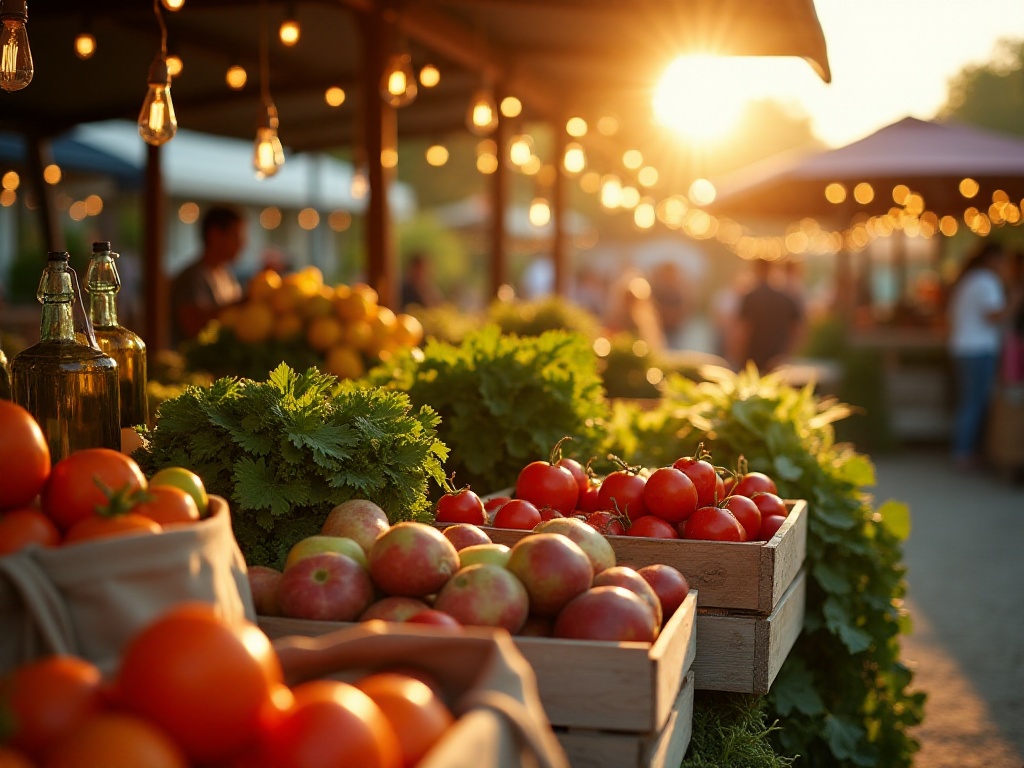
New Cleaning Initiatives
In personal care and home cleaning, I also conducted a thorough revolution. This process revealed that many modern cleaning products could be replaced with more environmentally friendly alternatives.
The biggest change was eliminating all liquid cleaners. I switched to natural handmade soap, which not only lacks plastic packaging but is also gentler on skin. A good handmade soap can last one to two months - though more expensive than regular soap, it's actually economical considering its lifespan.
I also switched to shampoo bars from liquid shampoo, requiring an adjustment period initially, but now my hair feels healthier. Conditioner can be replaced with diluted apple cider vinegar - both natural and economical.
For home cleaning, I discovered white vinegar and baking soda are truly universal cleaners. Diluted vinegar works for glass and floor cleaning; baking soda removes stubborn stains and odors. These natural cleaners are not only cheap but also more environmentally and health-friendly.
I also learned to make my own cleaners. For example, soaking lemon peels in white vinegar creates a natural disinfectant spray; baking soda mixed with essential oils makes a clothing deodorizer. These homemade products work well and fully utilize materials that would otherwise be discarded.
Toilet paper usage has also greatly decreased. I installed a simple washing device in the bathroom, mainly relying on water for cleaning, using toilet paper only for drying. This is more hygienic and saves lots of paper.
Disposable items like cotton pads and makeup remover pads were replaced with washable alternatives. Though initial investment is higher, it's both environmentally friendly and economical in the long run.
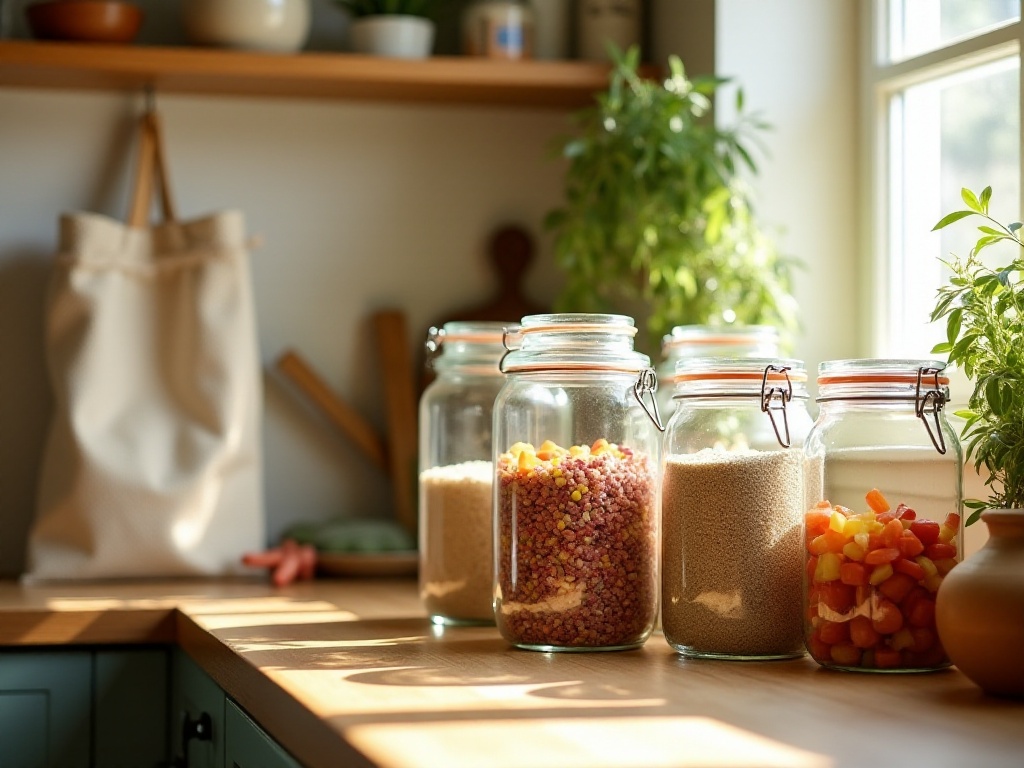
Storage Wisdom
A rational storage system is crucial for achieving zero waste. Through six months of exploration, I developed a storage solution that works for me.
First was container selection. I replaced all plastic storage boxes with glass containers. Most of these glass jars were repurposed - jam jars, pickle jars, etc. After cleaning and sterilizing, they're perfectly reusable. I labeled each jar with contents and storage date.
My kitchen now displays glass jars of various sizes, looking both neat and designed. Transparent glass lets me check ingredient quantities anytime, avoiding duplicate purchases or missing expiration dates.
Clothing storage also has its techniques. I adopted vertical folding, saving space while keeping all clothes visible. Each quarter, I clean out my wardrobe, donating or giving away rarely worn clothes to avoid accumulation.
Books and documents also found new homes. Materials that could be digitized went into the computer; necessary paper versions are regularly organized and archived. Waste paper isn't directly discarded but kept for drafts or crafts.
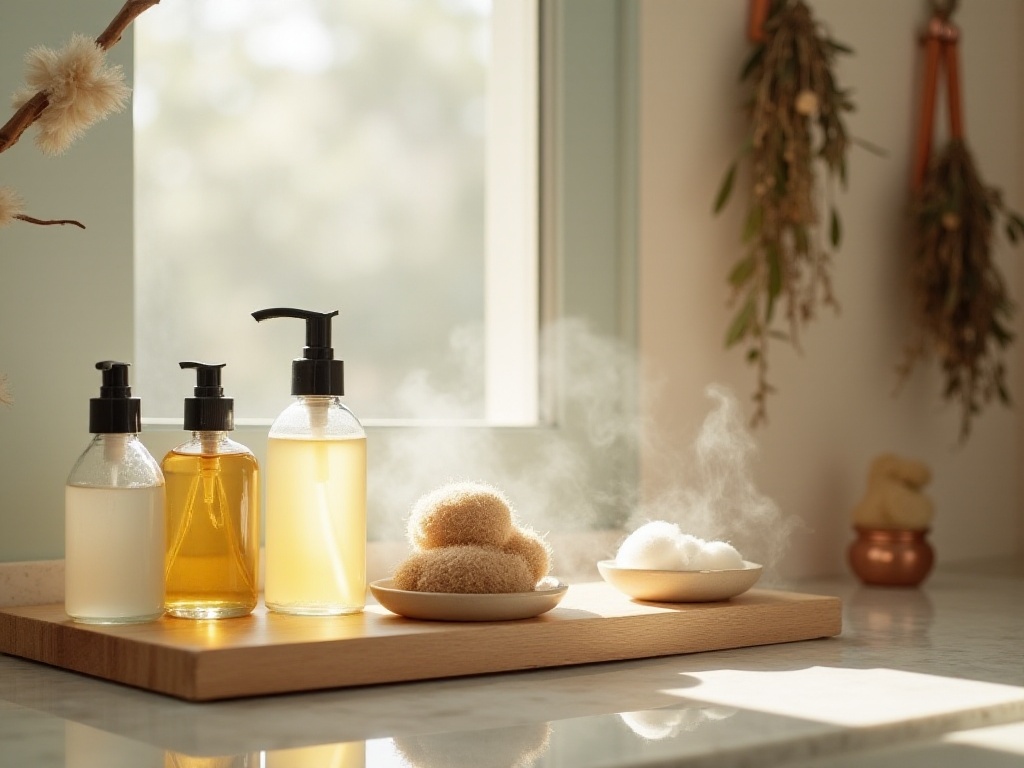
New Philosophy
These six months of zero-waste living brought not just material changes but a whole new life philosophy.
I discovered that often we buy things not out of need but influenced by advertising and trends. Now before buying anything, I ask myself: Is this really necessary? Are there more environmentally friendly alternatives? Such thinking makes my consumption more rational.
Through accounting, I clearly see the economic benefits of zero waste. Just in daily necessities, I save about 25% monthly. I use this saved money for learning and self-improvement, feeling more meaningful than buying unnecessary items.
More importantly, I feel control over my life. No longer led by various advertisements and promotions, but deciding purchases based on actual needs. This feeling is especially good, like finally breaking free from the whirlpool of consumerism.
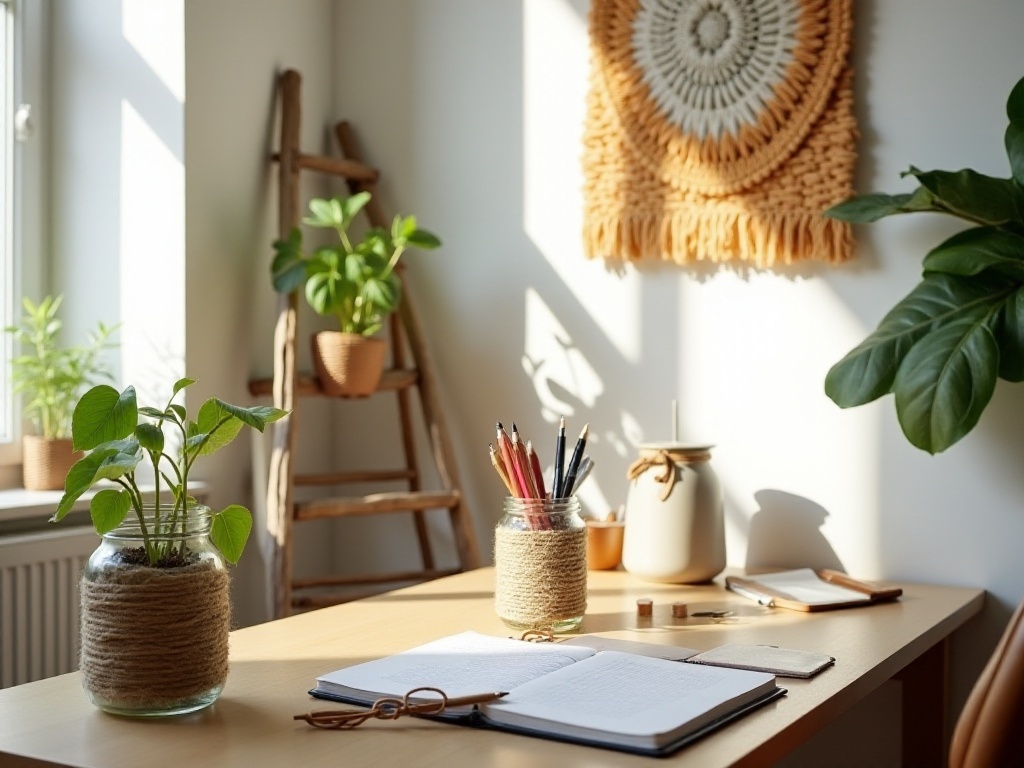
Thinking About the Future
During my time practicing zero-waste living, I often ponder: In this era promoting consumption and convenience, have we been too deeply surrounded by materialism?
I remember when I was young, family would say "thrift is a virtue" - now I realize this isn't just virtue but wisdom. When we learn to reduce waste, we're actually learning how to live more wisely.
Through these six months of practice, I deeply feel: zero waste isn't about living an ascetic life, but rethinking what we truly need. It teaches us to live more intelligently, protecting the environment while making life more abundant.
This lifestyle might feel uncomfortable at first, but persisting reveals benefits far exceeding expectations. It not only makes our lives more environmentally friendly but helps build healthier consumption concepts.
So, I want to invite more people to join the zero-waste movement. I believe as more people participate, our society will become better.
What do you think? Why not give it a try? You might, like me, fall in love with this simple yet meaningful lifestyle.

